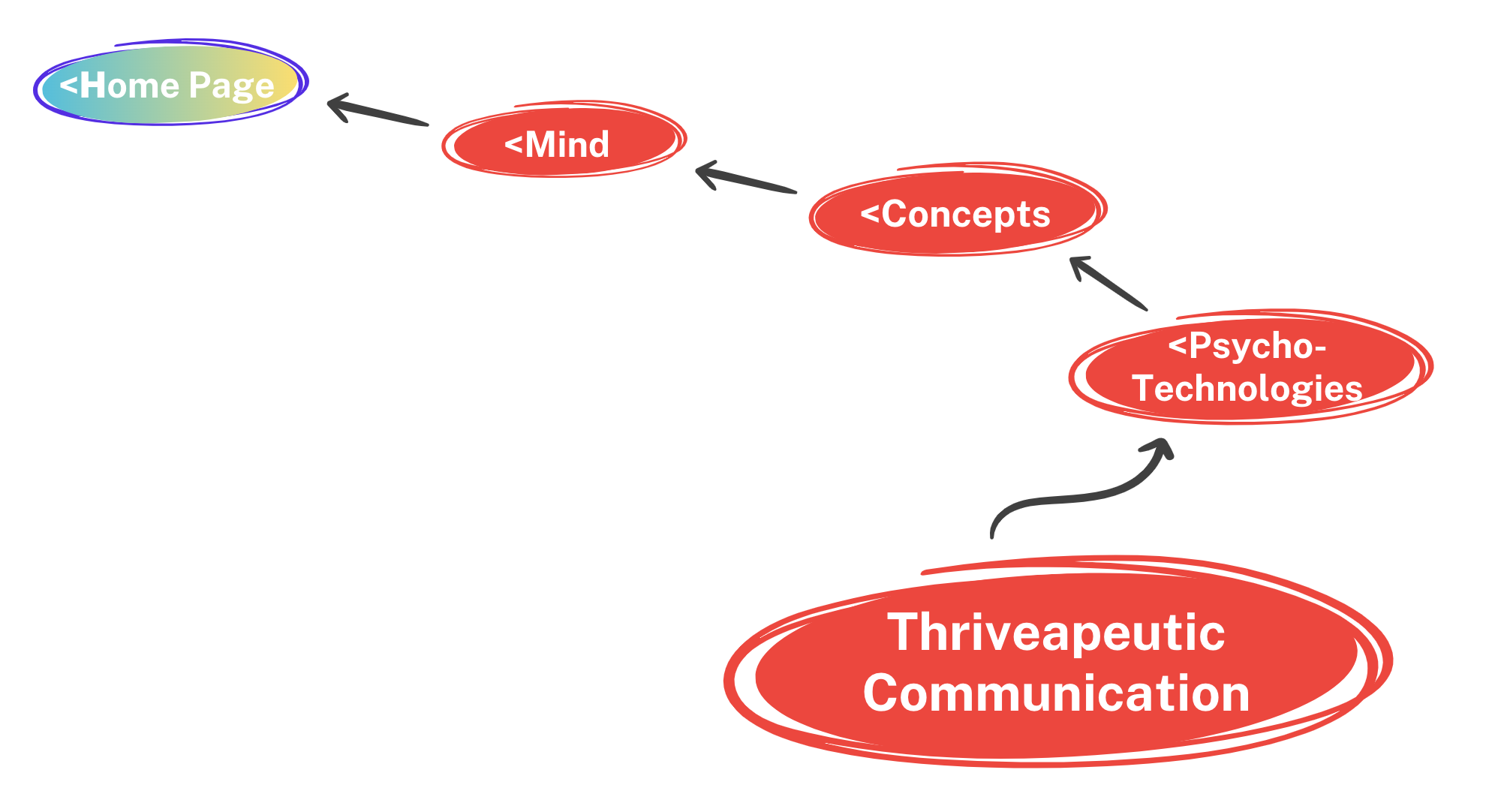

THRIVEAPEUTIC COMMUNICATION STANDARDS (TCS)
How do you know if someone with whom you are relating is a high quality collaborator? How safe is a person with whom you are relating? What qualifies someone as being a good partner for you regarding communication, sharing ideas, and more? These are very important questions. Truth be told, people prequalify themselves as being a good fit, safe, trustworthy, etc. At the same time, people prequalify themselves as not being a good fit, safe, trustworthy, etc. So how do people prequalify themselves? You allow for the existence of an invisible "trustworthiness scale," which is an arbitrary measuring system that scores a person's trustworthiness based on certain factors.
Do not root for anyone to be higher on this scale. Let people prequalify themselves regarding where they are on the scale. The higher up the scale they are, the more their trustworthiness is safe and a sound fit for you. The practice of letting people prequalify themselves where they are on the scale helps you develop higher quality relationships. Thriveapeutic Communication Standards (TCS) provide a generalized set of rules or modes of behaviors that reveal trustworthiness. The first and most important standard is openness. How open are you to learn, to collaborate with someone else to discover new insights? How well can you sit at the table of open and honest inquiry? Can you take a break from your current affiliations to collaborate pristinely on newer discoveries and creations? Can you see things as they really are regarding all of the different ways they can be seen or do you only see them as you see them? How well can you relate things you see to higher concepts? Can you atrribute a higher concept? Are you more interested in interacting with higher standards or affirming your current level of perception, interpretation, and relationships?
Many people are walking around with a dark arrogance. What is Dark Arrogance? It is knowing you are taking a strong position about something, while not admiting to yourself and others that the position you are holding may very well be remarkably incomplete or downright inaccurate. Admitting that you are a silly human regarding how strongly you feel about something will help you. Dark Arrogance is the practice of keeping your possible arrogance to yourself, not admitting that your postion may very well be remarkably incomplete. Keeping your possible arrogance under the radar or in stealth mode is what makes it dark. Sometimes, people who are sharing with dark arrogance may unintentionally reveal it. When some form of arrogance leaks out, pay close attention. You can attempt to address it, but be certain to address it with yourself first. Clean up any possible dark arrogance of your own so that you are higher up the trustworthiness scale. Take note when dark arrogance does slip out. It is a reflection of how safe (or not) you or someone else is on the trustworthiness scale.
As you move up the trustworthiness scale, you are more valuable as a partner and collaborator. That means you prequalify yourself as being more trustworthy for higher and higher quality relationships. Higher quality relationships participate in higher quality discoveries. If you are only trustworthy to a point, meaning you have to abandon these standards in favor of a dark arrogance or you are working to advance an existing or previous agenda, the quality of your contribution suffers. Once you establish and prequalify yourself as exceeding in trustworthiness, you have what it takes to maintain higher quality relationships and you, therefore, get the benefits that come from actually having those relationships.
What are some of the other standards in TCS? Besides openness and enhancing your ability to collaborate well with others, consider these others: Representing the infinite, developing yourself as a creative, and fueling the desire to make newer discoveries. To help in these regards, TCS employs strategies of the three camps solution, which gives you a fighting chance at suspending any allegience you may have to specific positions or orientations. This helps tremedously with a phenomenon known as cognitive bias.
TCS work amazingly well when working with archetypes, providing you a greater vantage point to see beyond any inherent programming that would cause you to be less valuable on the trustworthiness scale. In fact, every standard presented here has deep roots in providing far-reaching rewards. These standards present a playing field that makes relating more optimal. People who prequalify themselves as being unable to play by these standards need your acceptance. That means, "Let it be revealed to you regarding who is who." Don't root for people to be at a higher level than they currently demonstrate. Let those who show you that they prequalify for higher levels of communication be rewarded with your higher levels of communication. Accept who is who and communicate accordingly. Enhance your ability to identify the abilities of others for communicating at higher levels.